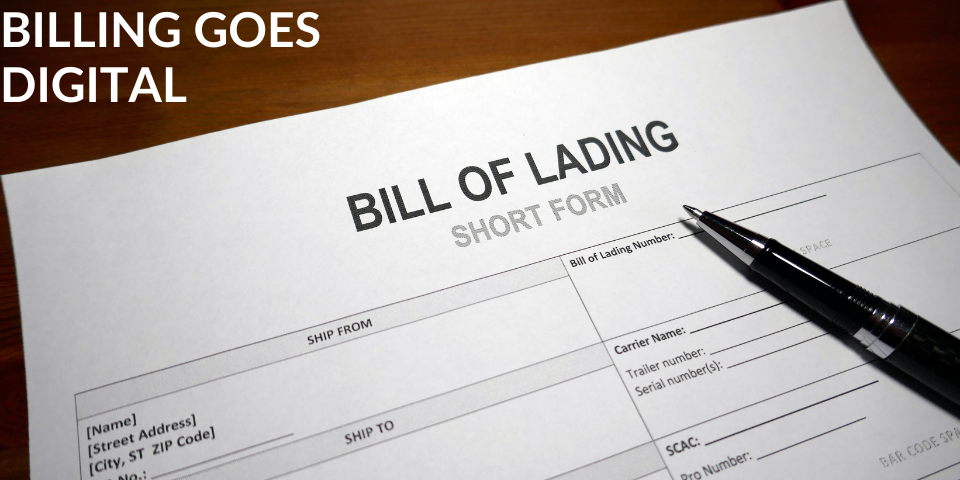
Billing Goes Digital
For those who have been used to conducting business in the expedite world, a change is on the horizon that aims to ease some of the pains that come with billing and bills of lading (BOL). My experience in the billing arena of expedite trucking lends itself to barely more than helping drivers figure out how to use systems like TransFlo. These systems of BOL submission allow drivers to submit customer signed paperwork to their companies, which also allows them to get their pay in a timelier fashion. However, there is a strong possibility that what's about to come will be a tremendous assist to all involved in the freight hauling process.
For the first time ever, the less-than-truckload (LTL) and expedite industry plans to install a universally standard format for electronically transmitting and submitting bills of lading (BOL) once a delivery has been completed. For OTR expedite drivers, this is going to be a huge benefit!
What's the Scoop?
The new electronic bill of lading (eBOL) standard was recently announced by the National Motor Freight Traffic Association (NMFTA), an LTL advocacy group that oversees the pricing and protocols within the industry. This individual solitary standard will aim at replacing the plethora of digital platforms that shippers, carriers and 3PLs have been using for many years.
According to the NMFTA, the new standard is going to reduce costs and costly errors and will improve communication and service. With one digital format in place and in practice, BOL data is going to be exchanged faster and earlier than ever before. Plus, the information will be more accurate and concise than it has been in the past.
The National Motor Freight Traffic Association indicates that 29 providers, including carriers, 3PLs, freight brokers and technology firms, have pledged to be fully operational under this new standard no later than July 20th of the coming year. Those who are already early users represent a large chunk of market share within the expedite and LTL industry.
So, What Comes Next?
The next phase in the project is to on-board larger LTL shippers whose freight volumes will justify the investment in such an application programming interface (API) format that will support this standardized platform. Smaller shippers typically do not have the volumes to justify such an investment, at least for the time being.
Larger shippers will come to realize that by migrating to a digital system that promises increased efficiencies for the carriers, they are likely to be rewarded with top-of-the-line pricing.
The expedite and LTL industries tend to fall behind all other freight transport modes in the sense of adopting such beneficial digital technology. Industry advocates have said there are huge opportunities for cost savings and service improvements by reducing its longstanding reliance on paper flow in favor of digitization.
This also bodes well for expedite drivers and owner operators who are hoping this digital way of BOL submissions will help to pad their wallets in a more expeditious fashion.
